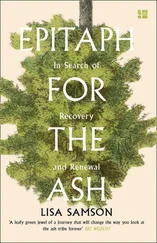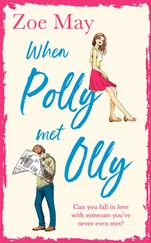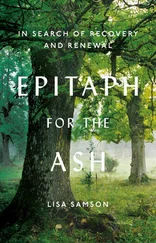He rocks back again and throws wine down his throat as though to douse the images his words have conjured. ‘And now, while the rest of the island siestas, I’ll be up in that room tapping away trying to turn a bloody nightmare into a potboiler.’ Charmian’s attention is back in the room. I see her wince when he adds: ‘But where there’s a pot that needs boiling someone has to be bloody doing it.’
He helps himself to the contents of my wine glass. ‘However, it’s not that bloody book that’s chewing at my guts today, it’s my last one.’ He pulls the letter from his pocket. It might be a death warrant, the way he stares at it. ‘Notes back from the editor. Last chance to make any changes before they print.’ He looks at Charmian, and pushes the letter towards her. ‘They’re happy to publish the novel as it is,’ he says and I can’t be certain that he isn’t smirking as he scrapes back his chair.
Charmian’s cheeks redden. She raises and puts down her knife. Her voice trembles. ‘Oh, how I wish Billy Collins had never sent you that five hundred pounds.’
She ignores the letter, seizes George’s barely touched artichoke and tears away the leaves.
‘We’d have sunk without it,’ George mutters and, pretending to bow to me, stumbles back to work, taking the wine jug and all of the joy of the day with him.
Charmian snatches up the letter, ‘George is pissed off because he drank too much booze last night,’ and puts it unread into her pocket. ‘And he’s in a strop because of all the people coming for dinner. He’s becoming a very unsociable version of himself.’ She sweeps crumbs from the table into the cup of her hand. ‘I keep telling myself it’s his illness.’
I stand at the sink rinsing plates. ‘What is the book you were talking about?’ I just can’t seem to stop poking around in her anguish.
She sighs deeply. ‘It’s a novel called Closer to the Sun .’ Her voice is dull, monotone. ‘It’s a sort of morality tale about rich people on yachts and a bunch of creative bods who arrive on Hydra and the impact they have on the locals.’
She’s fumbling for a cigarette but I can’t let her be. I’m surprised to find myself baiting her. A mosquito after all. ‘Is it based on something that really happened?’
She lights her cigarette and takes it to the courtyard door. ‘Oh Erica, why do you have to ask so many questions?’ she says and stands smoking and looking out like she’s seeking an antidote. Her eyes fall on some jasmine and she buries her face in it, pinches off a sprig and puts it through the buttonhole of her shirt. A bird in a cage on her neighbour’s balcony is singing its heart out. Gulls glint in the sky. She’s much calmer when she turns back to me.
‘Buried within this novel of his is a rather humiliating story based around a version of something that happened here. Something that makes me want to die with regret. The trouble is the publisher has already paid for it and we’ve no hope of paying him back because every penny of it went on life-saving treatment in the hospital for George. So there it is. I’ll tell you more about it another time, if you insist. But don’t you think it’s a rather gloomy thing to discuss on this beautiful day?’
I feel guilty for goading her throughout the long silence that follows. I try to make it better by chirping about Axel putting very intimate things about Marianne in his novel. ‘She seems fine with it, to be honest,’ I say, partly because I can’t imagine myself not being thrilled if Jimmy wrote about me.
At the mention of Marianne, Charmian stubs out her cigarette, and I follow her upstairs to Booli’s room, stand in the doorway while she ransacks some baskets for baby clothes. The sight of Booli’s old things softens her until she has to use a romper suit to wipe her eyes.
We kneel together to sort through them. ‘For reasons we don’t need to expand on here, I’m dreading an enormous fuss on the island when certain people get their hands on George’s novel, and that could be so terribly embarrassing for the kids,’ she says with the rompers pressed to her cheek. ‘If we weren’t so broke maybe we could spare the time to rewrite it in some way. It’s the first time George has put a version of us into something. By which I mean that we’re recognisably us but twisted to fit his narrative and that is a tremendous problem for me. And for the children…’
I wish I had a way to comfort her. She gets back to the smoothing and folding, gives herself a shake. ‘He wasn’t very well when he wrote it. Tortured, really. But who knows? All that pain and injured manhood on the page. Maybe it’s the best thing he’s ever written.’ And she looks up and gives me her saddest smile.
We tie the softly worn baby things into bundles with some ribbons she finds in her workbasket. She fastens a blue bow around a pile of nappies that are so thin they’re threadbare in places. I curse myself for being an annoying mosquito, uncertain she really wants me to accompany her to Marianne’s.
We have the clothes in two baskets and while we climb Kala Pigadia Charmian talks about her irritation with drifters and I can’t help wondering if she’s having a dig at me. As though reading my mind she turns and shakes her head.
‘I’m talking about all the poste-restante drongos who drop in and move on, people like Charlie who pretends to be an African chief and wears that silly loincloth over his jeans, or that wretched Patricia drifting through Europe, sitting on the kerb looking so very appealing with her paints in her lap and causing bloody havoc.’ The marble slabs are warm beneath our bare feet, worn smooth by the winter rains. ‘They keep coming,’ she says. ‘All with their pocketbooks of names who might be relied on for a meal or a bed in Ibiza, Paris, Venice, Tangier, Corsica or Casablanca. Passed from one to another. Star-rated, can you believe? Charlie wasn’t even shame-faced showing me. I was mortified to see that we only merited four bloody stars.’
Close to the sweet wells, the foliage becomes richer, the trees big enough to spread shade and share fruit, noisy with birds. The stray cats look less mangy than on other parts of the island. Charmian points out the mayor’s walled gardens. The last part of the climb is almost sheer on steps cut straight into the rock. Marianne and Axel’s house seems to grow out of the ridge, an eagle’s nest carved into the hill from which to look out for pirates. It’s hard to imagine how she manages with the baby carriage. Charmian and I are both sweating and out of breath.
Marianne is stirring a pot; the air is fragrant with steam. She seems as delighted by the bundles of clothes as she would be by a Bond Street trousseau. The room is whitewashed; the windows frame the sea. Painted bookcases are orderly with books. Straw mats and knick-knacks hang from the walls and the simple furniture and shutters are painted a delicate pale green, the colour of new leaves. She’s barefoot and pretty in a clean white shirt, the baby at her hip. Charmian holds out her arms, takes him, cradles and croons while Marianne unties her apron and repins her hair.
Charmian lifts the lid of the pot with an appreciative sniff.
‘ Fårikål , Axel’s favourite,’ Marianne says, inviting us to sit at the table, and I wince to remember Axel telling Patricia that he would hold his nose. The tablecloth is edged with lace, at its centre a Japanese bowl with floating pink blossom.
The baby gurgles and giggles. Axel Joachim is the chubbiest, sweetest little chap I’ve ever met, the sort of baby you see in an advert. His eyes are blue and enormous as pansies. His smile could be used to sell anything. Marianne brings us water on a tray with a posy of daisies.
She shows off a mobile that Axel has made from wire and stones. She lays the fat baby on a folded mat beneath it and he goes googly-eyed and kicks his legs around and she lifts his vest to blow raspberries on his tummy and they both explode with giggles. A small white dog is sleeping on a rag cushion beside a wooden rocking crib in which a black cat is curled. Marianne lifts out the cat and begs it not to be jealous.
Читать дальше
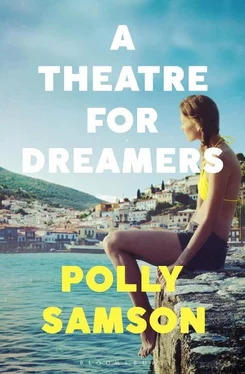
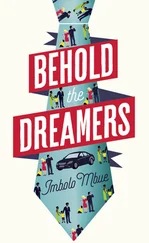

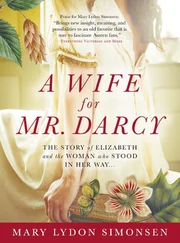
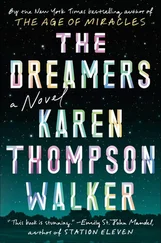
![Джон Макдональд - Wine of the Dreamers [= Planet of the Dreamers]](/books/430039/dzhon-makdonald-wine-of-the-dreamers-planet-of-thumb.webp)
